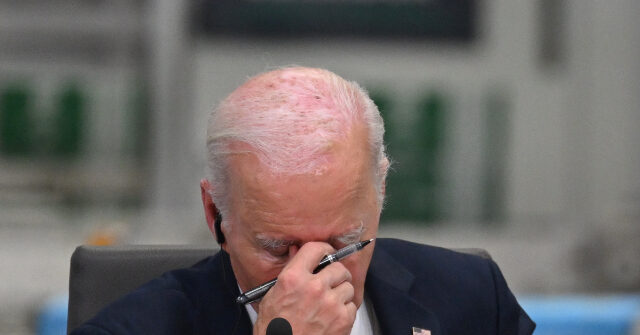In recent discussions regarding government funding negotiations, President Joe Biden has been characterized as “largely absent” from the proceedings, raising questions about his engagement in critical legislative matters. Reports indicate that both political strategists and lawmakers perceive a notable lack of involvement from the White House, suggesting that Biden’s administration may be retreating amidst rising tensions in Congress. As the specter of a government shutdown looms, particularly as the year draws to a close, Biden’s omission from these discussions has drawn criticism from various quarters, including Republican strategists who have expressed doubts about his competency. Doug Heye, a Republican strategist, was quoted saying that Biden seems “AWOL,” which reflects a growing concern regarding his leadership and ability to steer his administration through significant challenges like government funding.
As President Trump navigates his own challenges with congressional Republicans, the contrast in engagement is stark. Biden’s reluctance to intervene in the funding fight has been echoed across party lines, with White House Press Secretary Karine Jean-Pierre asserting that resolving the issue falls to Republicans in the House. This statement underscores a hands-off approach, suggesting that the administration is placing accountability primarily on the GOP. Furthermore, it has been reported that there is a sentiment among some Democratic strategists who prefer that the president remain uninvolved. The rationale behind this perspective points to a desire among Democrats to move past the perceived stagnation associated with Biden’s leadership. One unnamed strategist indicated that the focus for Democrats is to distance themselves from the Bidens in hopes of fostering a more cohesive approach to governance.
This sentiment is reinforced by former Republican Congressman Carlos Curbelo, who argues that Biden’s presence may not be beneficial for Democrats at this juncture. He notes that Biden has largely assumed a “lame duck” status, implying that his influence and authority have waned significantly, leaving little incentive for party members to rally around his leadership. Curbelo emphasizes that even if Biden were to speak on the matter, it’s unlikely there would be much receptiveness to his input. This observation raises significant concerns about Biden’s effectiveness and positioning within his party as he contends with both intraparty dynamics and external pressures.
The current scenario has led to speculation about a broader political strategy from Biden, particularly regarding how he navigates the intricacies of the funding negotiations. Some analysts suggest that his retreat may be a deliberate choice, allowing other political figures, such as Trump and even Speaker Mike Johnson, to take ownership of what seems to be a chaotic funding discussion. By stepping back, Biden may be attempting to avoid further complicating an already fraught situation, leaving the heavy lifting to others who are perhaps more actively engaged in confronting the current legislative impasse. This approach signals a strategic withdrawal, distancing Biden from potential fallout as negotiations become more contentious.
Critics assert, however, that this absence could have consequences for Biden’s leadership image— and potentially for his party’s standing moving forward. The characterization of being “lame duck” comes with a suite of challenges, including diminished influence in shaping policy and a struggle to rally party unity. The implications of this lack of involvement may go beyond mere perception; it risks a further entrenchment of partisan divides at a time where bipartisan cooperation is crucial. The ongoing struggle for funding illustrates the complexities of the current political landscape, revealing gaps that could further exacerbate challenges for the Biden administration if not addressed.
As the negotiations continue, the dynamics between Biden’s relationship with Congress and his overall governance strategy will undoubtedly undergo scrutiny. His decision to remain largely absent raises fundamental questions about leadership tactics in a polarized political climate. With the stakes so high— a looming government shutdown and the potential fallout for vulnerable constituencies— one cannot overlook the criticality of executive engagement in legislative processes. Therefore, as the situation unfolds, both Democrats and Republicans will likely be watching closely to see whether Biden steps up to the plate or remains a sidelined figure in an arena that desperately requires stable leadership and decisive action. Ultimately, how this political chapter concludes may shape the Biden legacy and influence the electoral landscape leading into the 2024 elections.

